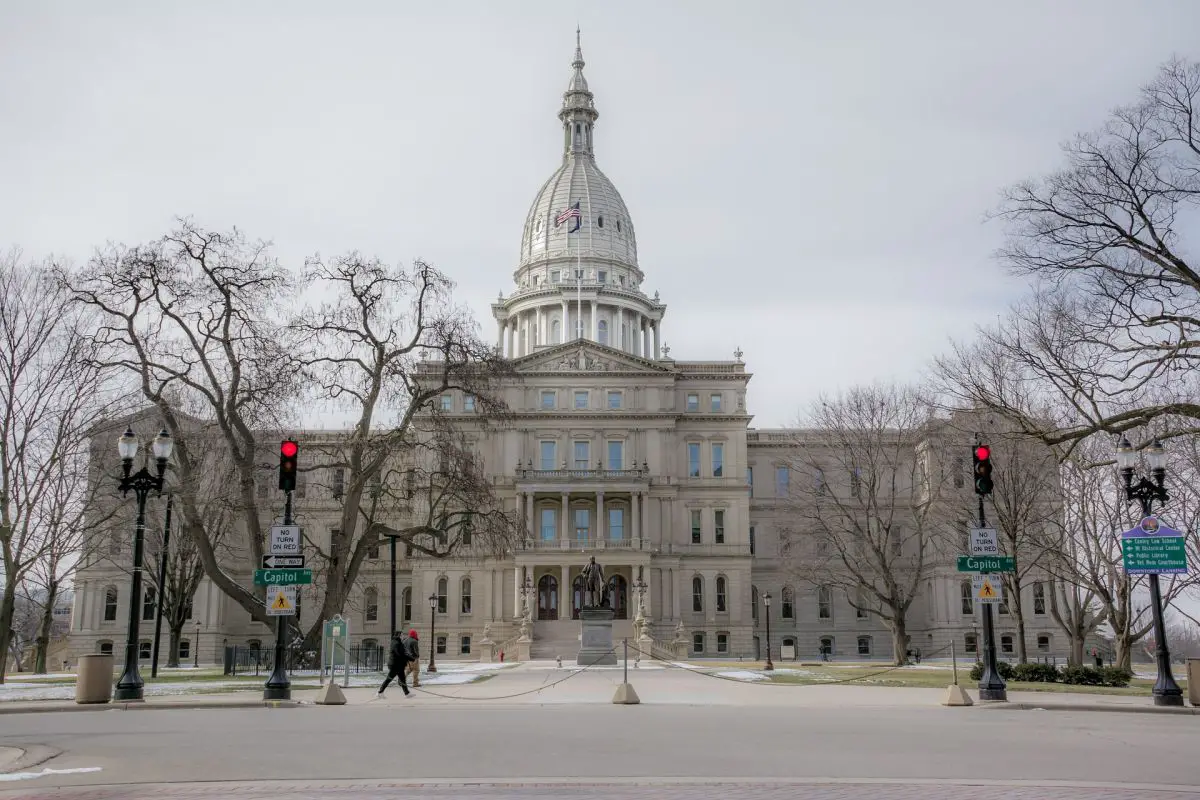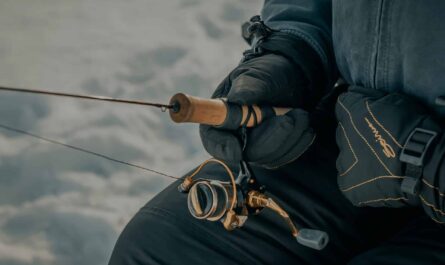A significant legislative development has surfaced in the complex and often contentious realm of Michigan’s fishing regulations. Michigan House Bill 5108, introduced by State Representative Jason Morgan of Ann Arbor, stands at the forefront of a potential paradigm shift within Michigan’s sport and commercial fishing sectors.
Table of Contents
Analyzing the Impact of House Bill 5108 on Michigan’s Fishing Industry
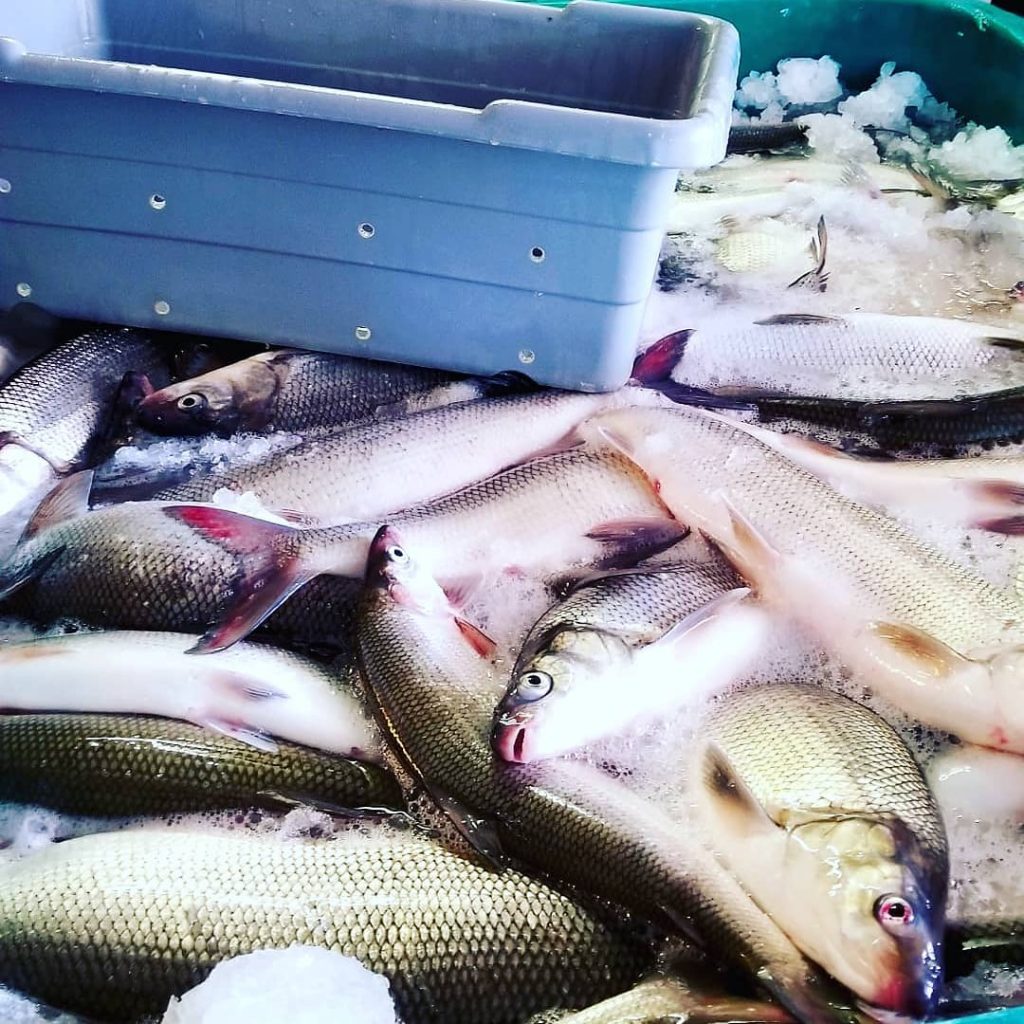
Termed the Protect Michigan Fishing Act, the bill seeks to substantially revise the legal framework governing commercial fishing in the Great Lakes. Its introduction signals a pivotal moment for an industry that has navigated a sea of regulatory, ecological, and economic challenges over many years. House Bill 5108 represents more than mere legislative change; it is a critical intersection of historical practices and prospective policies in Michigan’s fishing industry.
This bill, in its essence, is a litmus test for the future of commercial fishing in Michigan, poised to reshape the industry’s landscape potentially. For stakeholders and observers familiar with the intricate interplay of policies and environmental considerations in the Great Lakes region, Michigan House Bill 5108 is a development of considerable significance.
The Historical Context of Michigan’s Commercial Fishing Industry
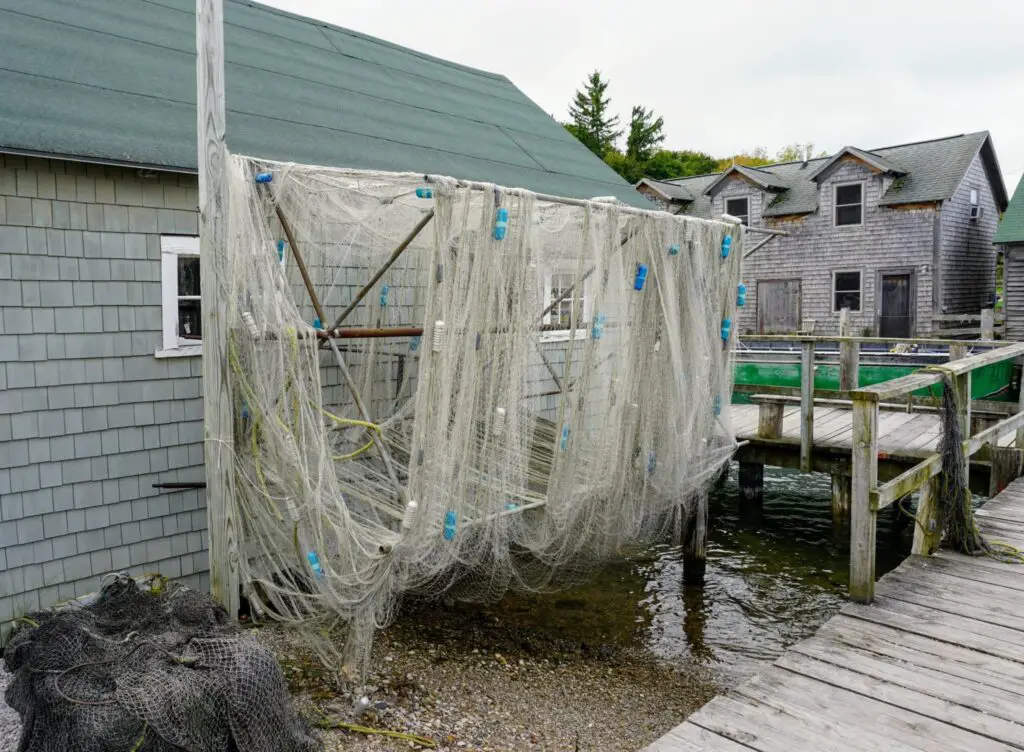
The commercial fishing industry in Michigan, rich in heritage and economic significance, has navigated a sea of changes over the decades. Understanding this history is crucial as we examine House Bill 5108 and its potential impact on the industry.
Legacy and Evolution: Michigan’s commercial fishing, once a thriving sector, has been shaped by ecological shifts, technological advancements, and regulatory changes. This evolution reflects the industry’s resilience in the face of environmental and economic challenges.
Regulatory Landscape: State regulations have significantly influenced The industry’s trajectory. These laws have oscillated between support and restriction, responding to ecological concerns and competing interests from recreational fishing and conservation groups.
Contemporary Challenges: In recent years, commercial fishing in Michigan has faced heightened pressures. Stricter environmental regulations, market shifts, and competition with recreational fishing have contributed to a decline in commercial operations, affecting both the economy and cultural traditions.
House Bill 5108 – Charting New Waters for Commercial Fishing
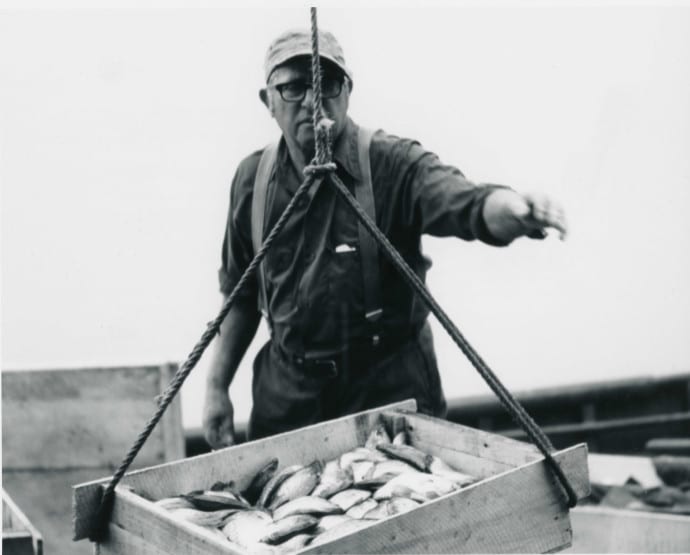
House Bill 5108, introduced by Representative Jason Morgan, stands as a potentially transformative piece of legislation for Michigan’s commercial fishing industry. Its provisions, both bold and controversial, merit close examination for their capacity to reshape the industry’s future.
Key Provisions of the Bill: Central to House Bill 5108 is the authorization for the commercial harvest of certain game fish species, notably lake trout, smallmouth bass, panfish, walleye, and perch. This is a significant departure from longstanding restrictions that have primarily limited commercial operations to non-game species.
Potential Industry Revival: The bill signals a potential revival for the commercial fishing sector, which has seen a steady decline in activity and economic viability. By expanding the scope of permissible catches, the bill could inject new life into an industry struggling under the weight of regulatory constraints and market limitations.
Balancing Act: However, this legislative proposal does not come without its complexities. It poses a delicate balancing act between reviving a faltering industry and ensuring sustainable fishing practices. The bill’s impact on fish populations, recreational fishing interests, and ecological balance in the Great Lakes will be a subject of intense scrutiny and debate.
Implications for the Future: The introduction of House Bill 5108 marks a critical juncture. It opens a dialogue about the future of commercial fishing in Michigan, weighing economic revitalization against environmental stewardship. This legislation could redefine the relationship between commercial and recreational fishing sectors and set a new course for managing the state’s aquatic resources.
The Current Marketplace: Great Lakes Fish and Consumer Accessibility
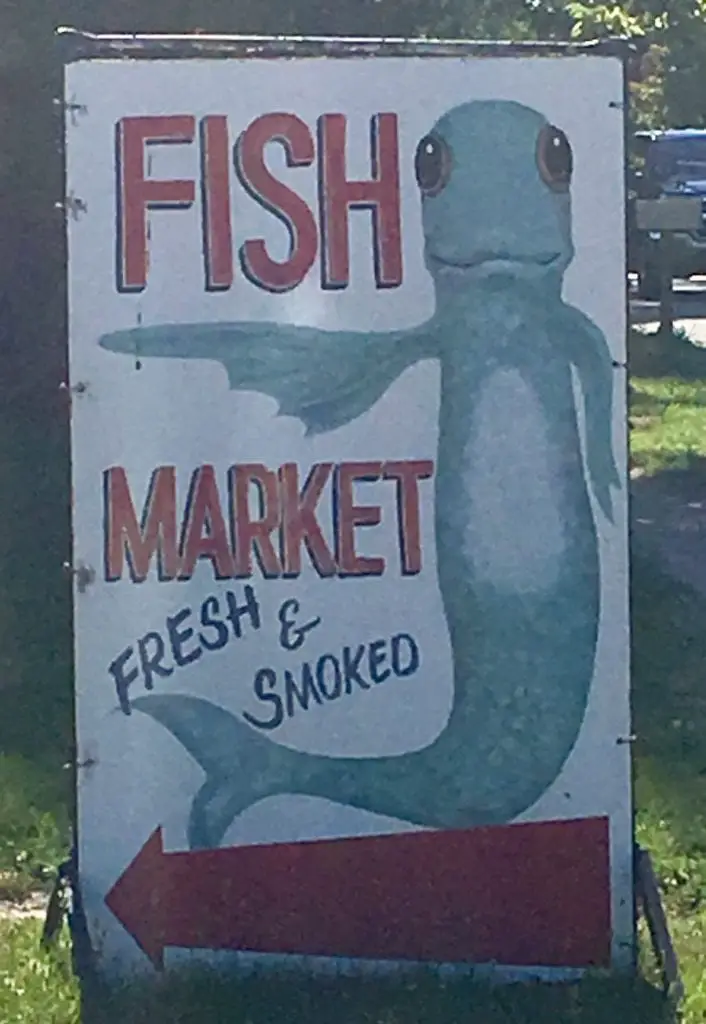
The present-day reality of Michigan’s commercial fishing industry starkly contrasts its storied past, particularly in the context of market accessibility for Great Lakes fish such as perch and walleye.
Reliance on External Sources: A significant aspect of today’s marketplace is the dependence on imports for Great Lakes fish. Restaurants and consumers in Michigan often find themselves sourcing perch and walleye from Canadian suppliers or indigenous tribes with fishing rights on the Great Lakes. This reliance underscores a gap in local supply, a direct consequence of the decline in state commercial fishing operations.
Implications of Imports: Import dependence has multiple repercussions. Firstly, it affects the freshness and pricing of these fish in the local market, potentially impacting consumer preference and satisfaction. Secondly, it raises questions about the sustainability and carbon footprint of the seafood supply chain, given the distances involved in transportation.
House Bill 5108’s Potential Impact: In this context, House Bill 5108 could represent a pivotal shift. The bill might reduce Michigan’s reliance on imported fish by expanding the scope for local commercial fishing. This could lead to increased availability of locally sourced perch and walleye, with freshness, pricing, and sustainability benefits.
Broader Industry Implications: Beyond market dynamics, the bill’s impact on the commercial fishing industry is profound. If successful, it could begin a resurgence for local commercial fisheries, offering a lifeline to an industry grappling with decades of decline and regulatory challenges.
The Vanishing Fleet: Understanding the Decline of Great Lakes Commercial Fishing
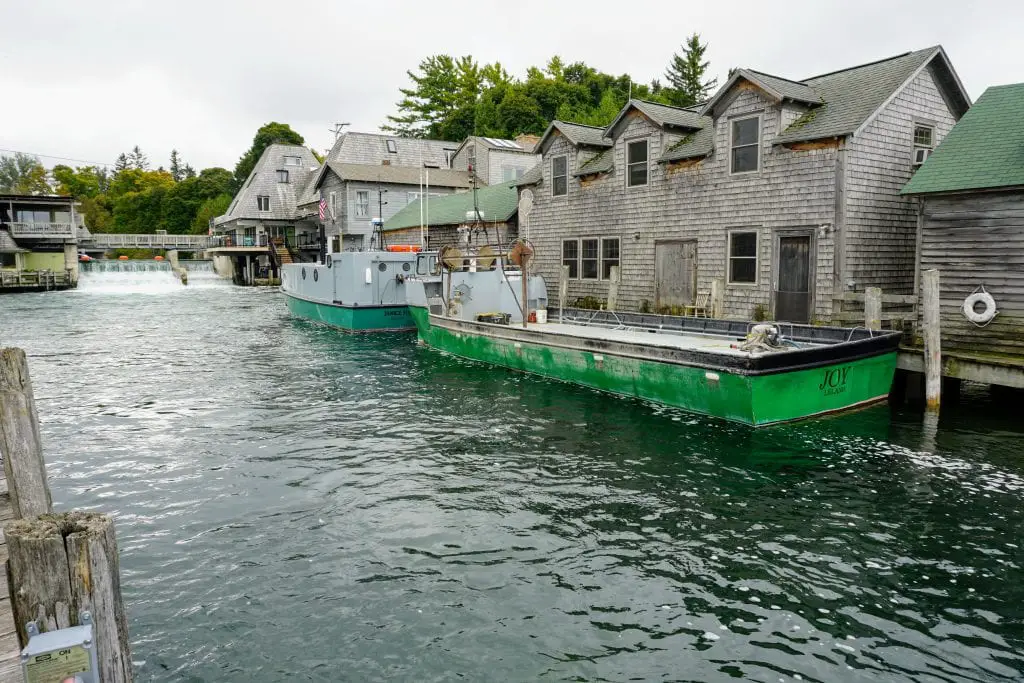
The current state of the Great Lakes commercial fishing industry is a tale of diminishing presence and a battle for survival, a narrative essential for contextualizing House Bill 5108.
A Dwindling Industry: The stark reality is that the number of commercial fisheries operating on the Great Lakes has steadily decreased. This decline reflects many challenges ranging from stringent regulatory frameworks to environmental changes and competitive pressures from recreational fishing.
Economic and Cultural Implications: The reduction in commercial fishing operations has economic and cultural ramifications. For many communities around the Great Lakes, commercial fishing is not just a livelihood, but a way of life passed down through generations. The decline threatens this cultural heritage, erasing a significant part of Michigan’s identity.
House Bill 5108: A Beacon of Hope?: In this context, House Bill 5108 emerges as a potential catalyst for change. It could be seen as the first significant legislative effort in over fifty years aimed explicitly at supporting and reviving the commercial fishing industry in the Great Lakes. By allowing the commercial harvest of certain game fish, the bill could open new opportunities for an industry in desperate need of revitalization.
Critical Analysis: However, the potential benefits of the bill must be weighed against concerns for sustainable fishing practices and the ecological health of the Great Lakes. The introduction of House Bill 5108 initiated a critical conversation about the future of commercial fishing in Michigan, balancing economic revival with environmental stewardship.
Weighing the Scales: Prospective Impacts and Stakeholder Reactions to House Bill 5108
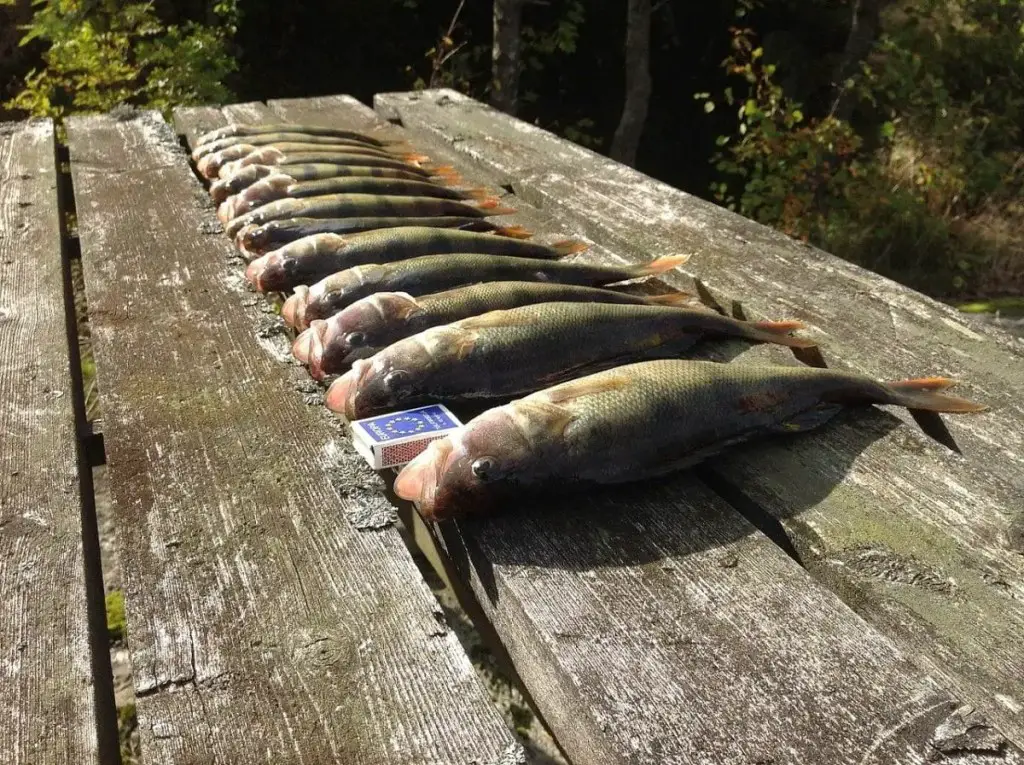
As Michigan House Bill 5108 garners attention across Michigan, its potential impacts and the reactions it has elicited from various stakeholders become critical to understand.
Economic Revitalization Prospects: The bill promises economic revitalization for Michigan’s commercial fishing industry. By expanding the range of fish that can be commercially harvested it could provide a much-needed boost to the state’s fishing economy, potentially creating new jobs and supporting local communities.
Environmental and Ecological Concerns: Concurrently, the bill raises environmental questions. There is a delicate balance to be struck in ensuring that increased commercial fishing does not lead to overfishing or disrupt the ecological equilibrium of the Great Lakes. The sustainability of fish populations remains a paramount concern for conservationists and recreational fishing enthusiasts.
Stakeholder Reactions: The bill has elicited a spectrum of reactions:
- Commercial Fishers view it as a potential lifeline, a chance to revive an industry facing existential threats.
- Recreational Fishing Advocates express concerns about the impact on fish populations and the potential resource competition.
- Conservation Groups are cautious, advocating for measures that ensure the long-term health and sustainability of the Great Lakes ecosystem.
- Policymakers and Legislators are considering the bill’s implications, balancing economic benefits with environmental responsibilities.
The Road Ahead: As discussions around House Bill 5108 continue, it becomes evident that its passage would not be an end but the beginning of a nuanced journey. It necessitates ongoing dialogue and adaptive management strategies to ensure that the benefits of reviving commercial fishing are realized without compromising the ecological integrity of the Great Lakes.
Looking Ahead: The Future of Michigan’s Commercial Fishing Post-House Bill 5108

As the discourse around House Bill 5108 unfolds, it’s crucial to consider the broader implications of this legislative initiative for the future of Michigan’s commercial fishing.
Potential for Industry Transformation: House Bill 5108 represents a significant opportunity to reshape Michigan’s commercial fishing landscape. If passed, it could mark the beginning of a new era for an industry that has struggled to maintain its foothold in modern economic and environmental conditions. This transformation could lead to a rejuvenation of traditional fishing communities and practices, while potentially opening up new avenues for economic growth.
Balancing Economic and Environmental Interests: The bill’s impact extends beyond the immediate economic revival; it also poses questions about sustainable fishing practices and environmental stewardship. The future of commercial fishing in Michigan hinges on finding a balance between exploiting fishing resources and preserving them for future generations. This requires careful management, ongoing scientific research, and adaptive regulations that respond to ecological changes.
Stakeholder Collaboration: For the successful implementation and long-term success of House Bill 5108, collaboration among stakeholders is essential. This includes commercial fishers, environmentalists, recreational anglers, policymakers, and the broader community. An inclusive approach ensures that diverse perspectives are considered in shaping the future of the industry.
Monitoring and Evaluation: Post-implementation, continuous monitoring and evaluation will be key. This is necessary to assess the bill’s impact on fish populations, economic viability, and ecological health. Data-driven insights will be crucial in making informed decisions and adjustments to regulations as needed.
In conclusion, House Bill 5108 stands not just as a legislative proposal but as a potential catalyst for change in Michigan’s commercial fishing industry. Its success and the sustainable future of the industry depend on a balanced approach that considers economic, environmental, and social factors. As this bill progresses through the legislative process, its journey will be one of great interest and significance for all those connected to the Great Lakes and Michigan’s storied fishing heritage.
Summary of House Bill 5108
House Bill No. 5108, introduced on October 10, 2023, in the Michigan House of Representatives, aims to amend the 1994 PA 451, known as the “Natural Resources and Environmental Protection Act”??. The bill focuses on several aspects of fishing and fisheries management in the Great Lakes and connecting waters. Key elements of the bill include:
- Ownership and Privilege: The bill reiterates that all fish in the waters of Lakes Superior, Michigan, Huron, and Erie, along with the bays and connecting waters, are the property of the state. Fishing in these waters is considered a privilege, and fish must be taken, transported, sold, and possessed in accordance with the stipulations of the bill??.
- License Management: The Department of Natural Resources may limit the number of fishing licenses issued, based on the need for protection, preservation, management, harvesting, and utilization of fisheries. The department will determine the qualifications for license issuance, considering factors like the number of existing license holders, the harvestable fish population, and the capacity of licensees’ equipment??.
- License Violations: Any person whose license has been suspended or revoked is ineligible to apply for or receive a new license for the following two years??.
- License Application and Conditions: Applicants must submit a form provided by the department, along with the required fee. The application should detail the applicant’s fishing methods, vessel information, and the types and quantities of gear to be used. Licenses expire on December 31 of the year they are issued, and licensees must adhere to specific conditions set forth in the bill??.
- Restrictions and Penalties: The bill establishes various restrictions and penalties for violating its provisions, including potential imprisonment and fines. For instance, interference in the lawful taking of aquatic species is prohibited, and violators may face misdemeanor charges??.
- Gear Regulations: The bill specifies regulations regarding the use and management of fishing gear, including requirements for reporting lost or vandalized gear, and stipulates penalties for violations related to gear management??.
- Authorized Fish Species for Commercial Take: The bill lists specific fish species that are authorized for commercial take, ensuring controlled and regulated fishing activities??.
In summary, House Bill No. 5108 focuses on amending existing legislation to better manage fishing activities, license issuance, and gear usage in the Great Lakes region. The bill emphasizes sustainable fishing practices, responsible gear management, and adherence to specific regulations to ensure the conservation and proper utilization of fisheries resource.
Specific Fish Species For Commerical Take
The specific fish species authorized for commercial take according to House Bill No. 5108 are as follows:
- Cisco (Coregonus artedi).
- Rainbow smelt (Osmerus mordax).
- Species of the family Catostomidae, including:
- Quillback (Carpiodes Cyprinus)
- White sucker (Catostomus commersonii)
- Longnose sucker (Catostomus Catostomus)
- Northern hogsucker (Hypentelium nigricans)
- Silver redhorse (Moxostoma anisurum)
- Black redhorse (Moxostoma duquesnei)
- Golden redhorse (Moxostoma erythrurum)
- Shorthead redhorse (Moxostoma macrolepidotum)
- Greater redhorse (Moxostoma valenciennesi)
- Bigmouth buffalo (Ictiobus cyprinellus)
- Black buffalo (Ictiobus niger).
- Freshwater drum (Aplodinotus grunniens).
- Burbot (Lota lota).
- Gizzard shad (Dorosoma cepedianum).
- Common carp (Cyprinus carpio).
- Catfishes of the family Ictaluridae, including:
- Black bullhead (Ameiurus melas)
- Yellow bullhead (Ameiurus natalis)
- Brown bullhead (Ameiurus nebulosus)
- Channel catfish (Ictalurus punctatus)
- Flathead catfish (Pylodictis olivaris).
- White perch (Morone Americana).
- White bass (Morone chrysops).
- Black crappie (Pomoxis nigromaculatus) and white crappie (Pomoxis annularis).
- Rock bass (Ambloplites rupestris).
- Yellow perch (Perca flavescens).
- Lake trout (Salvelinus namaycush).
- Smallmouth bass (Micropterus dolomieu).
- Sunfish (Lepomis).
- Walleye (Sander vitreus).
- Alewife (Alosa pseudoharengus)??.
These species are designated in the bill for authorized commercial fishing in Michigan’s Great Lakes and connecting waters.
Outside Sources on Michigan House Bill 5108
The authoritative sources that provide information on House Bill 5108 introduced by Ann Arbor State Representative Jason Morgan are:
- Michigan House Democrats’ official website: housedems.com
- This source provides official statements and legislative updates directly from the Michigan House Democrats, offering a firsthand account of legislative activities, including those related to House Bill 5108.
- Outdoor News: www.outdoornews.com
- Outdoor News is a credible source for information related to outdoor activities, including fishing and hunting. Their coverage on House Bill 5108 focuses on its impact on the fishing community and related industries.
- Michigan United Conservation Clubs (MUCC): mucc.org
- MUCC is a leading conservation organization in Michigan, providing insights and perspectives on legislation affecting Michigan’s natural resources, including the fishing industry and related legislative developments like House Bill 5108.
- Huron County View: huroncountyview.mihomepaper.com
- As a local news outlet, Huron County View offers regional perspectives on state-level legislative actions, including those that impact local communities and industries, such as the fishing industry in relation to House Bill 5108.
Thumbwinds Ongoing Coverage of Michigan Commerical Fishing
There are several posts covering various aspects of commercial fishing in Michigan:
- “Michigan Commercial Fishing Law – Governor Whitmer Signs Bill To…“: This post discusses the efforts to modernize the Michigan Commercial Fishing law, which had not been significantly revised since 1929. The Michigan Senate Natural Resources Committee, chaired by State Senator Ed McBroom, worked for over nine years on this modernization??.
- “Michigan DNR Shut Down Michigan Commercial Fishing in 2021“: This article covers the Michigan Department of Natural Resources (DNR) director Dan Eichinger’s decision in late 2020 to change rules that led to prohibiting fishing in water deeper than 80 feet. It also discusses the change in the Whitefish season??.
- “The Planned Demise of the Michigan Commercial Fishing Industry“: This post reflects on the financial aspect of the commercial fishing industry, noting that license fees from the few remaining commercial fishing businesses do not cover the cost of managing the industry??.
- “4 Michigan Legislators Demand DNR Restore Commercial Fishing Licenses“: This article covers the Michigan DNR’s decision in 2021 not to issue commercial fishing licenses, highlighting the impact of this decision on local institutions like the Bay Port Fish Company and the Bay Port Fish Sandwich Festival??.
- “Commercial Fishing Bills Struggle to Gain Momentum in Michigan Legislature“: This post discusses the broader value of fishing to Michigan, mentioning the Great Lakes Fishery Commission’s statement that the Great Lakes’ commercial, recreational, and tribal fisheries are collectively valued at more than $7 billion annually, supporting over 75,000 jobs??.
Discover more from Thumbwind
Subscribe to get the latest posts sent to your email.

